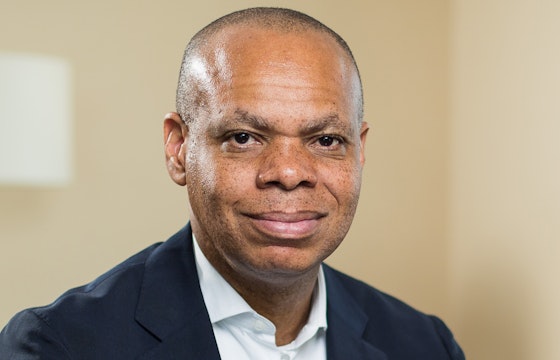Open Society Foundations are making an investment of $130 million to combat the devastation in the wake of the coronavirus

Patrick Gaspard
President, Open Society Foundations
This week, George Soros highlighted the enormous economic damage being inflicted by the COVID-19 pandemic, and centered on the disparities it has exposed as the leading open society challenge of this mushrooming crisis. Acknowledging a global failure to rethink the economic model in the wake of the 2008 financial crisis, George has called on the U.S. government to follow the path of several European governments in guaranteeing the paychecks of all workers during this historic shutdown.
As someone who came to his activism through the struggles and the organized collective voice of low-wage workers, I am deeply aligned with our chair’s assessment of this moment. That appraisal propels our advocacy with political leaders and shapes our grant making to meet the moment. We have increasingly recognized the importance of joining our work on human rights with efforts to achieve economic justice. This pandemic requires us to lean forcefully into policy work on systems transformation, but there is a widening humanitarian crisis that we must also rise to with compassion and our well-known rigor.
I have been conferring with colleagues across the Foundations to redeploy our resources in a comprehensive intervention to address the COVID-19 crisis, which touches on virtually every aspect of our work. Now is a time to dig deep and to go big.
Today, I am announcing that the Open Society Foundations are making an investment of $130 million to combat the devastation in the wake of the coronavirus—focusing on communities too often left out and left back by government policy. The disease, which has upended assumptions in strategies we’ve been diligently composing for months, will require two distinct and large phased responses from us in 2020. The first phase detailed here is weighted toward the most intense current flash points. A second phase will be dominated by investments in the Global South that will focus on economic interventions and rule of law issues that are already surfacing.
Broadly speaking, our funding will fall into four buckets: efforts to support low-income workers—domestic workers, care givers, the undocumented, those in the informal and gig economies; to protect refugees, migrants, and asylum seekers, who face new COVID-19–related risks with virtually no structural supports; to ensure that as treatments and vaccines emerge, they are available and accessible by all; and to counter the populist narratives and authoritarian power grabs we’ve seen in response to this crisis at the expense of civil liberties and human rights.
The United States now has twice as many confirmed cases as any other country. And the plight of workers in the richest country on earth is especially wrenching. At the Open Society Foundations, we are investing $68 million in new funds in the United States, redoubling our efforts to support the low-wage worker ecosystem, which is suffering profound shocks from the virus.
We expect that the work we are supporting in New York in particular—the epicenter of the virus in the United States—will be mirrored in cities and states across the country, and will provide models for the relief response around the world. These measures in New York include:
- Funding to provide direct payments to immigrant workers and small business owners, who number in the hundreds of thousands in the city, but whose immigration status—many are undocumented—renders them unable to access federal stimulus funds
- Support for a public-private partnership to help the city launch emergency centers and staff to help provide childcare for the young children of essential workers and first responders
- Aid to organizations providing frontline support for vulnerable populations who face the greatest difficulty accessing essential services, especially the homeless
But as a global foundation, our commitment extends far beyond the United States. We’re also investing in efforts to help ensure that vulnerable communities in emerging economies have equitable access to quality health care information and services, and that health care providers can get the equipment they need to adequately care for those communities.
We’ve invested in helping efforts to rebuild following the devastation of COVID-19 in Bosnia and Herzegovina, Hungary, and Italy. We’re giving grants to frontline service providers in Johannesburg and London. And we’re helping to fund a global effort to reduce mandatory detention, encouraging the many governments moving to release detainees in the face of the coronavirus to rethink the policies that created mass incarceration in the first place.
And there is much more in the works from our regional and national foundations around the world, from urgent assistance grants established by our foundations in Kyrgyzstan and Ukraine; meal delivery support for thousands of elderly, disabled, and chronically-ill in Armenia; meal delivery for vulnerable Roma across Europe; emergency funding to artists in Haiti; and more.
But beyond this initial response, it’s time to think long and hard about the kind of world we want to live in. For many of us, the pandemic has underlined the challenges to our globalized world, and to the old ways of running our economies, posed by the existential threat of climate change. The current catastrophe also presents an opportunity—an opportunity to push for fundamental changes needed to build societies that are stronger and more resilient in addressing the challenges to come. I assure you that the Open Society Foundations will be an active participant in this search for a better world to emerge from the trauma of our present horror.